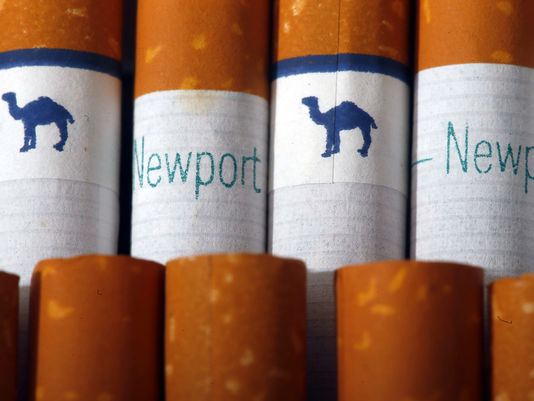R.J. Reynolds fights $23.6 billion verdict
HTTP/1.1 200 OK Server: nginx/1.2.7 Content-Type: text/html; charset=utf-8 Content-Language: en Last-Modified: Sun, 03 Aug 2014 16:57:04 GMT X-UA-Compatible: IE=Edge,chrome=1 X-Secret: cnpudnkgcnpiZXZnbUBoZm5nYnFubC5wYnogbmFxIFYganZ5eSBnZWwgZ2IgdHJnIGxiaCBuIHdiby4= Cache-Control: max-age=20 Expires: Sun, 03 Aug 2014 16:59:43 GMT Date: Sun, 03 Aug 2014 16:59:23 GMT Transfer-Encoding: chunked Connection: keep-alive Connection: Transfer-Encoding
R.J. Reynolds, a subsidiary of Reynolds American, is following through with its vow to fight a court verdict totaling $23.6 billion in punitive damages.
On July 28, the second-largest tobacco company filed for a post-trial hearing in a Florida federal appeals court to challenge a July 19 lawsuit verdict for a widow whose husband who was a longtime smoker.
In its post-trial filing, the maker of Camel, Winston and Newport brand cigarettes said that the punitive award would result in "economic castigation" to the company, asserting that its "stipulated net worth between 2006 and 2008 averaged approximately $8 billion."
"We feel that this (the verdict) is grossly excessive," Reynolds American CEO Susan Cameron told CNBC on Friday. "We believe that it is not legal in the state of Florida, nor constitutionally. We feel the court will and should set it aside."
But the plaintiff's attorney, Christopher Chestnut, insisted that "no one lawsuit was going to cripple the company."
"They (Reynolds) were making billions of dollars in the '50s," Chestnut said. "The company made it clear that $100 million wasn't big enough to send a message. They're arrogant."
The case was originally a part of the class-action Engle-Progeny lawsuit against big tobacco companies in 1994. The Florida Supreme Court rejected the jury's verdict, however, and said that plaintiffs could only file for lawsuits individually.
For its defense, the tobacco company cited past settlements stemming from the Engle-Progeny class-action lawsuit, saying that the $23.6 billion settlement was nearly 100 times larger than any previous punitive award.
Reynolds said that the case decision was a product of "passion and prejudice," underscoring what it believed was a lack of conclusive evidence.
Chestnut reemphasized that Reynolds should focus on making a safer product, rather than reducing its lawsuit award.
"They need to take responsibility for what they have knowingly done for decades. They should fix the problem rather than fight the verdict."
R.J. Reynold's appeal came in the midst of talks for Reynolds American to acquire its competitor Lorillard. The transaction would be valued at $27.4 billion, but has to be first approved by the Federal Trade Commission.
The acquisition would still put the company behind Marlboro-maker Altria, which has 50% market share vs. Reynolds and Lorillard's combined 33% share, analysts say.
On Friday, Reynolds American closed at $55.75, down 0.2%. Its 52-week high was $63.39, while its 52-week low was $46.55. Most analysts agree that the lawsuit verdict hasn't had much impact on Reynolds' shares.
"We expect to hear back from the judge in two to four weeks," Cameron said to CNBC.
Read or Share this story: http://usat.ly/1ngOEzS










